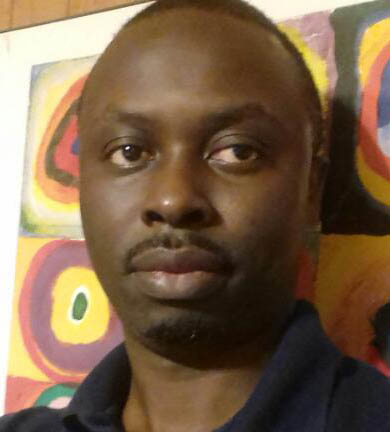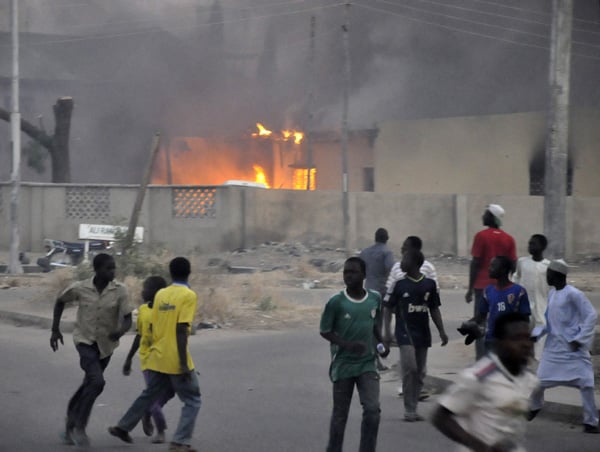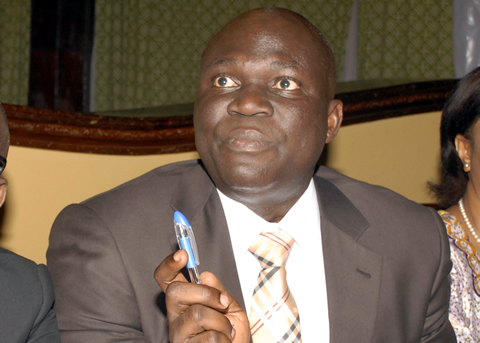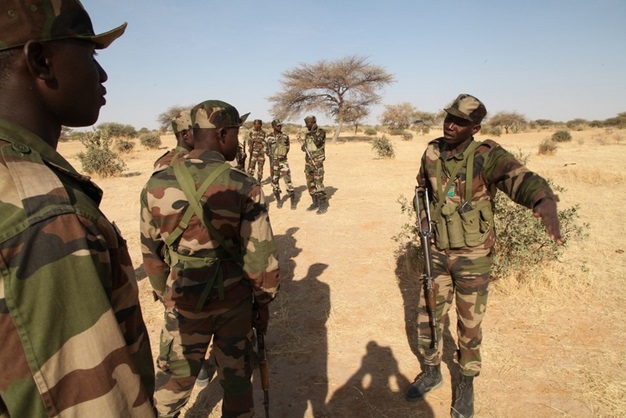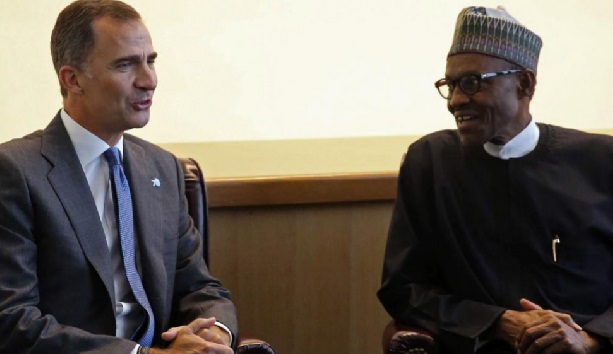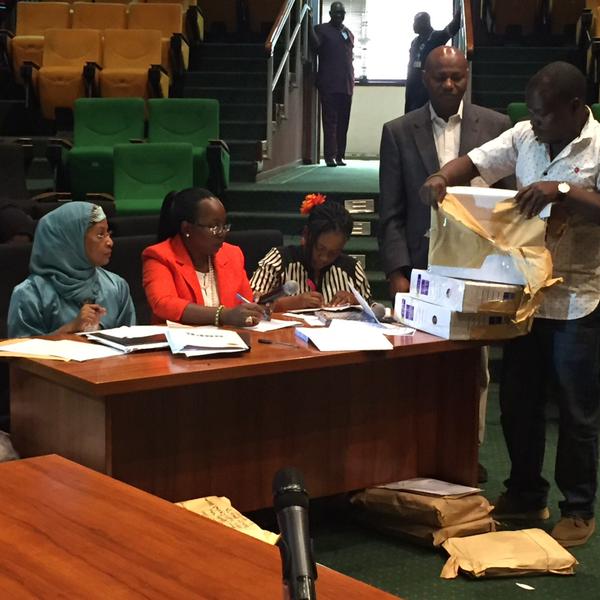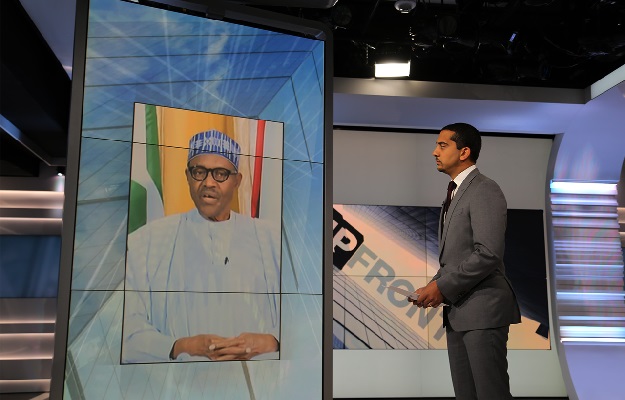This week, the social media buzz has been about President Muhammadu Buhari’s ministers. The oratory power and intelligence displayed by the former Governor of Ekiti State, John Kayode Fayemi, expected to be named the Minister of Foreign Affairs and others who took their own bow during the Senate screening.
But one area Buhari cannot be praised despite his collection of smart people to help him drive his progressive policy for the nation in the days to come is his inability to include anyone below the age of 35 on the list of nominees sent to the Nigerian Senate.
In contrast to previous elections, young people dominated the 2015 presidential campaign. They were not just key voters; they were the drivers of the campaigns. They were everywhere carrying the message of change using whatever channel available to them. It is easy to understand why young people matters in this country; the youth make up more than half of the Nigeria’s population. That is the demographic that Buhari has decided to ignore in the choice of his ministers.
Now, next year, Nigeria will likely hit its record 200 million people, when the 2016 census figure is computed and the youth will continue to be the largest demography. Does that gets your muscles expanded or gives you goosebumps?
Advertisement
Yes, there may be reasons to be nervous about the future of our dear country, especially since most of us have heard the theory of overpopulation as the bane of our underdevelopment. But the question to ask ourselves is this: what is the population of America? With a population estimated at 322,583,006 as of July 1, 2014, the United States ranks third on the list of the most populated countries and we are only number seven. So the next question is how has the United States ensured the progress it has made for it to remain a benchmark for development, despite its huge population? Wait for the answer.
Clearly, the issue of population size and growth has been a subject of debate for many years. It has rolled back and forth between those who believe that population growth restricts economic growth and those who argue that population growth fuels economic growth. The later are those who call Nigeria the ‘Giant of Africa’. They gave us that name, because they believe our population is our strength. They simply think of Nigeria in terms of market economy—where supply and demand is key—to arrive at that name.
But with the American example, I will say population size plays little role in development prospects. It is the demographic transition that a country needs to watch out for and plans its policies to meet the changing age structure. Nigeria continues to fail in this area. Buhari would have given the nation a sign of hope with at least the nomination of one person under the age of 35 to show he understands the demographic change in the country, but he appears to have missed that opportunity.
Advertisement
This ‘demographic dividend’ or demographic ‘window of opportunity,’ when the working-age (youth) population is greater than the total number of population is all Buhari needs to make the progressive change that we all yearn for. But I get a sense that with the youth not having a voice in the cabinet, there may be a challenge in addressing the needs (unemployment and quality education) of this group of people. And where that happens, there may be discontent, increased crime wave and social unrest.
So far, I have not heard of anyone who has led the ministry of youth in the past that was below the age of 35, especially since 1999, when we returned to democracy. Are there no young citizens who could do well, if given such opportunity? Let me put it directly, what impact will the 68-year-old, Audu Ogbe—whose Wikipedia page still shows that he’s a member of the Peoples Democratic Party (PDP) 10 years after he left the party— make that will be greater than that of a youth whose brain is wired with advance knowledge of technology for development and gift of oration to inspire young people to greatness?
Ogbe was a minister as far back as 1982 and a child born then would have been 34 years old without same opportunity. I think Buhari scored zero on that.
As it is, Buhari will need to either utilise the window of opportunity provided by the youth demographic and turn it into a boom or ignore it like his predecessors did and turn it into a bane for the country. In November 2006, I was selected as part of a committee to build scenario for Nigeria’s future. The 34 other people on the committee with diverse backgrounds were people of extra-ordinary brilliance. They include Chika Nwobi, the founder of Level 5 Lab who previously was the CEO of MTech plc, Ntai Bagshaw who made the list of CNN African Journalist Award shortlist for 2009 and currently the CEO of Terraworks, Muhtar Bakare, a banker turned publisher and the CEO of Kachifo Limited, Dr. Beem Beeka, Pamela Braide, Mrs. Nadu Denloye, Orode Doherty, Cathy Echeozo, Otive Igbuzor, Rabi Isma, Maryam Lemu, Abubakar Balarabe Mahmoud, Yahaya Maibe, Zakari Momodu, Abdu Mukhtar, Auwal Musa, Chika Nwobi, Cordelia Okpei, Temitope Oshikoya, Umar Oyekan, Ken Saro-Wiwa Jr., Seun Tayo-Balogun, Hassan Usman, Halima Wali-Inuwa, Tasiu Wudil and Rakiya Zubairu, Fabian Ajogwu SAN, Egbichi Akinsanya, Bemigho Awala amongst others.
Advertisement
We spent most part of the year 2007 holding meetings around the country. The meetings were guided by no other person than Ndidi Nwuneli whose organisation, LEAP Africa and African Leadership Institute jointly brought us together for the Nigeria 2025 scenarios project that premised its work on making projections on the future of Nigeria. The outcome of those meetings were released in 2008 by LEAP Africa in collaborations with Aspen Institute to explore and outline the possibilities of future of Nigeria and I recommend that President Buhari should make a request to have the report both in video and book form.
This is why: When this scenario was built, there was no Boko Haram insurgency, but the outcome of the meetings alluded to what we now have today as insurgency. The report from our nine-month meetings clearly showed that Nigeria could either end up in one of the following four scenarios: Parambulator, Jaga Jaga Republic, Shine Your Eye or We Don Win. The details are in the scenario report. I know that by constructing scenarios, the aim is to inform and engage the public and opinion leaders on the main issues that will drive the nation to one type of the future or the other. For this piece, my scenario is that the continued sideline of the young people (with the largest population size) in governance will spell doom for our collective future.
This article first appeared in THISDAY
Advertisement
Add a comment
